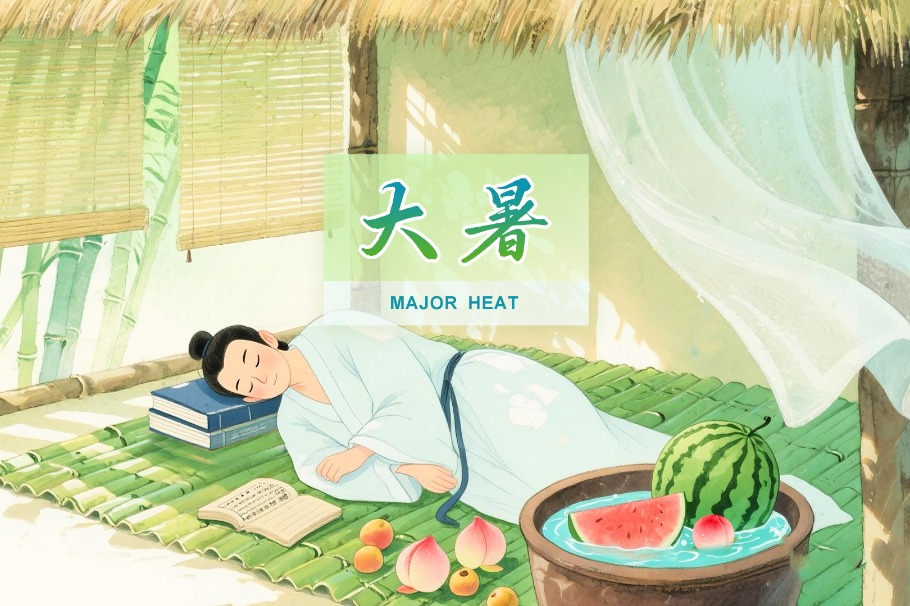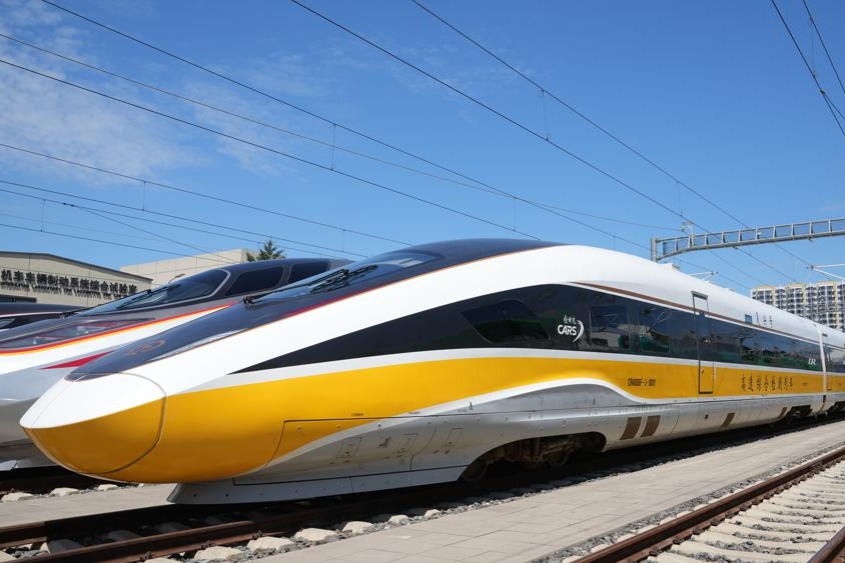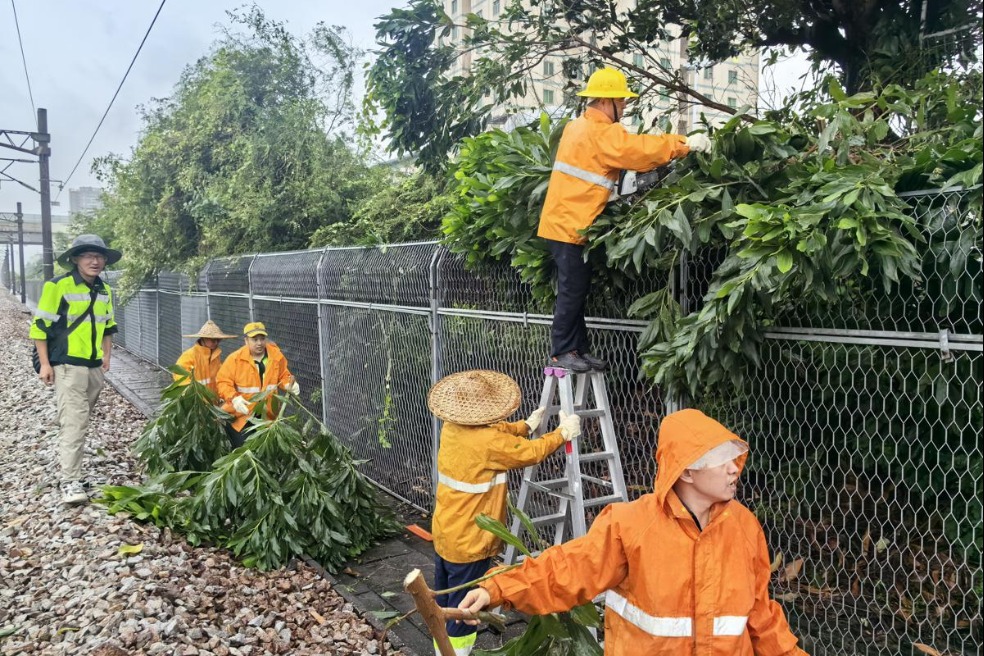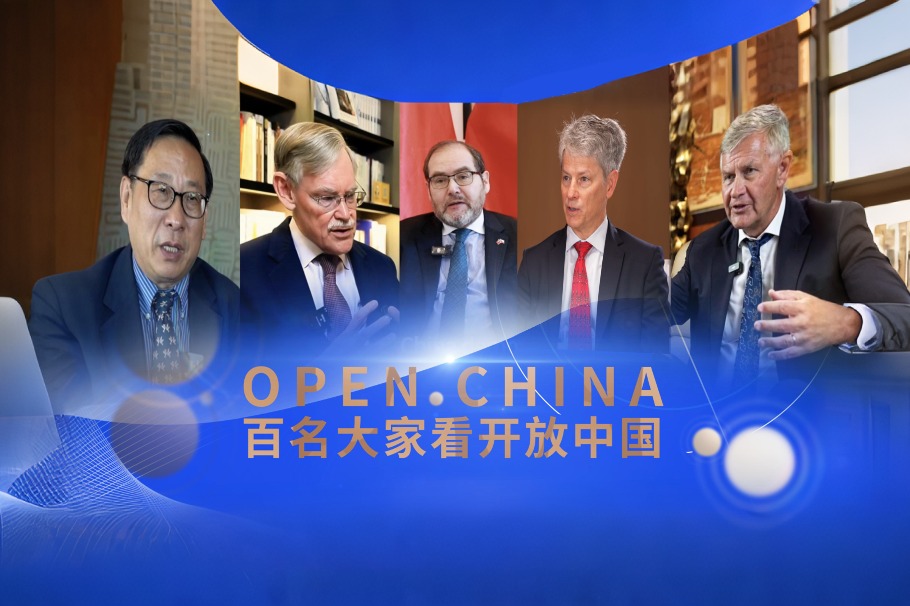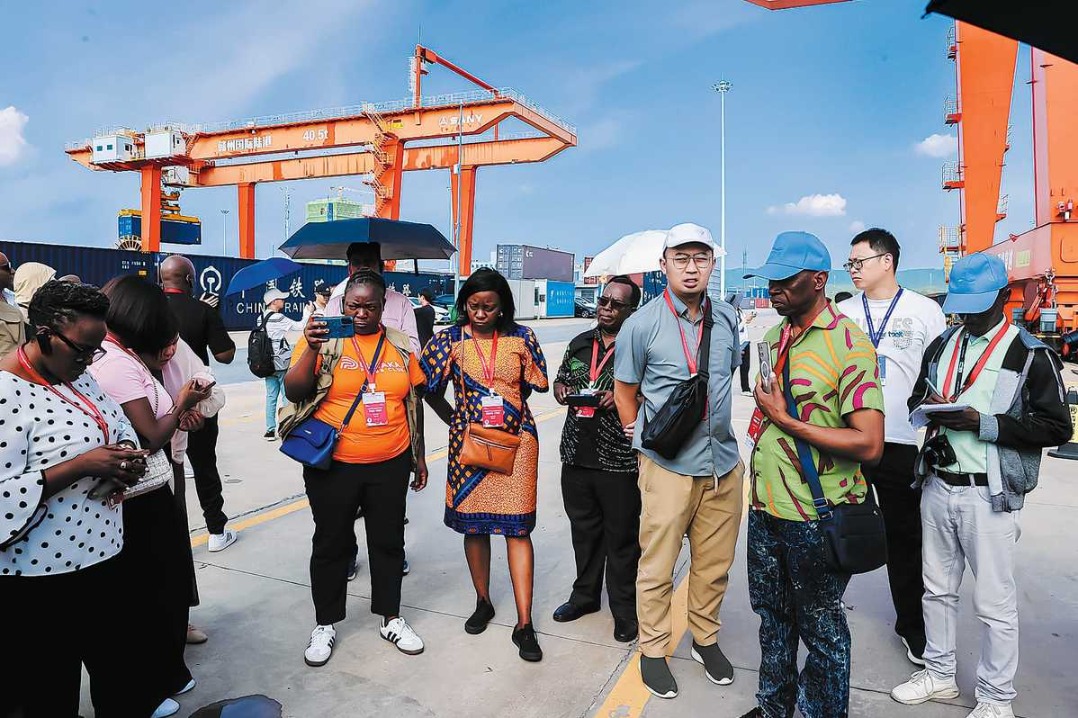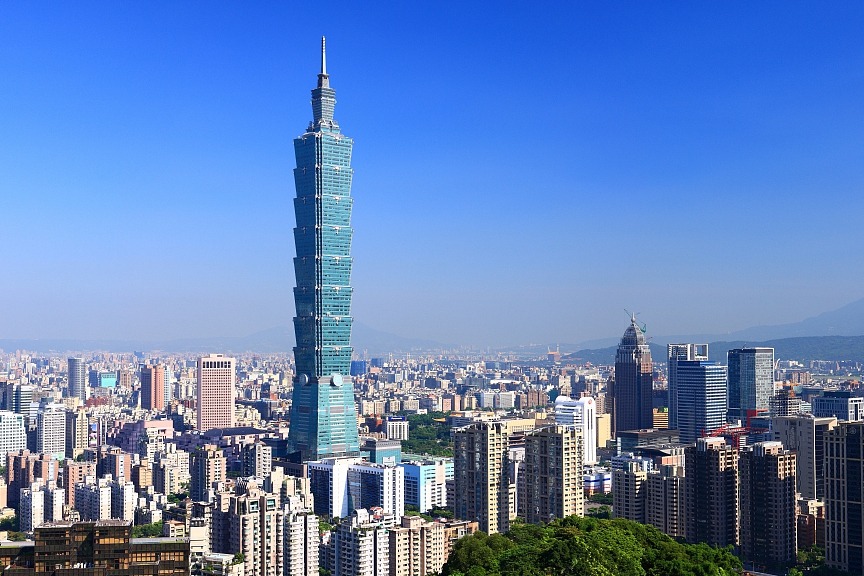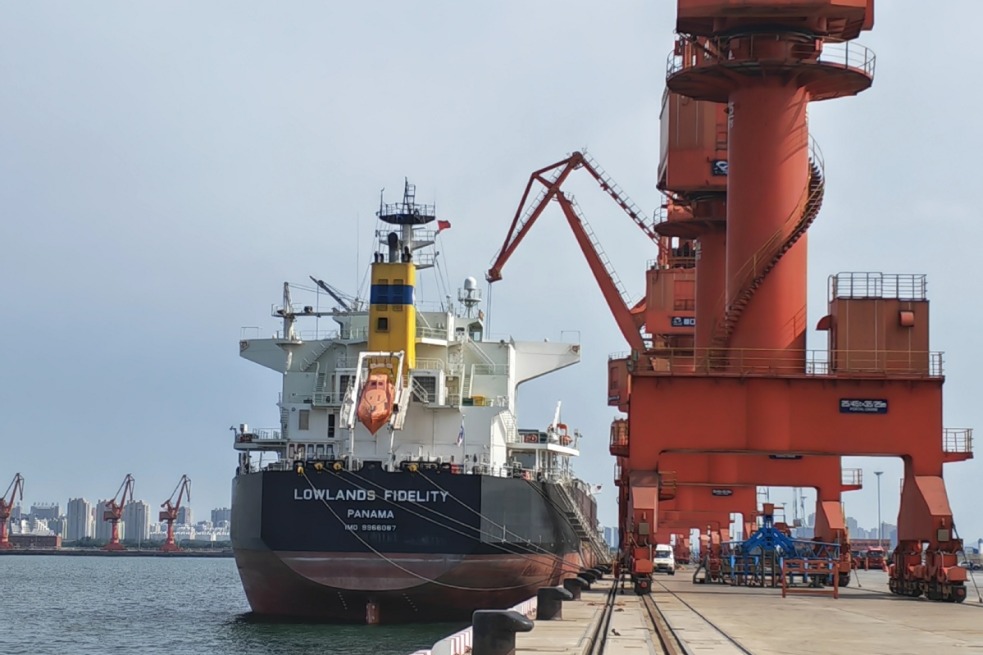Lai's agenda toxic for cross-Strait ties

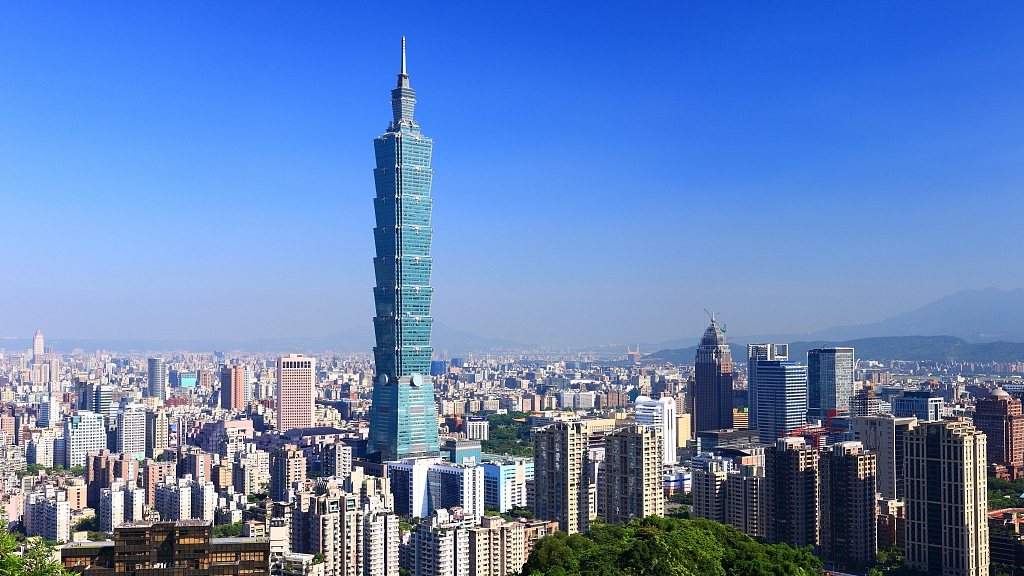
One month before the "mass recall" vote scheduled for July 26 that his Democratic Progressive Party initiated to remove some opposition members from the island's legislature and increase its own, Taiwan leader Lai Ching-te started a so-called"10 lectures on unity".
Lai's lectures focus on "nation, democracy, peace and prosperity". But under the guise of "unity", Lai is trying to divide and destabilize Taiwan. By manipulating public opinion, Lai is promoting "Taiwan independence", deepening the growing divisions among the public and exacerbating conflicts between different political parties and groups.
Lai's actions and statements are premeditated and aimed at poisoning cross-Taiwan Strait relations. They are attempts to fuel interparty confrontations, trigger social unrest and public anxiety on the island. By exaggerating the "mainland threat" and inciting "anti-mainland" sentiments, Lai risks further worsening cross-Strait ties, and destabilizing regional security.
Despite winning the elections last year, the DPP couldn't gain a majority in the island's "legislative body" and thus faces the governance challenges. Finding it difficult to push through its agenda for the lack of a majority in the legislature, the DPP has resorted to desperate measures since Feb 1, including the campaign to recall all Kuomintang members, which threatens to change the balance of power on the island. The move has ignited a full-blown DPP-Kuomintang confrontation.
The DPP has been using its executive powers to file false legal cases against opposition leaders and suppress their efforts to counter the recall vote. In the first wave, 24 KMT members in the legislative body face the recall vote on July 26.
The aggressive purge of dissenting voices, on the pretext of the recall vote, is a blatant manipulation of public sentiment, trampling on Taiwan's legislative system. Such actions are not only disgraceful but reprehensible.
Lai's involvement in the "mass recall" campaign under the pretense of unity reveals his and his party's political, economic and social failures. Instead of addressing governance issues and improving people's livelihoods, the DPP is hyping up sensitive issues in order to distract the public from these failures.
Taiwan's economic growth has stagnated in recent years because of soaring prices, skyrocketing housing costs, power shortages and rising unemployment. The US' imposition of a 32 percent "reciprocal tariff" on imports from the island has increased the economic turmoil, as well as the pressure of currency appreciation and unemployment. The growth of the island's semiconductor and electronics industries, constrained by US policies, is diminishing as investments shift to the US and its traditional industries such as agriculture, fisheries and tourism struggle due to cross-Strait tensions. The DPP's indifference to these issues has caused its approval ratings to plummet.
Strangely, instead of trying to resolve the issues through better governance, the DPP has been trying to stir up a "recall-vote" frenzy to purge dissenters. Lai's claim that the recall vote is aimed at "purging impurities of the sword through relentless tempering" is ludicrous rhetoric. In his view, anyone not aligned with him is a "blemish" to be removed from the legislature. Is this how Lai intends to consolidate his "civic power"? His statements sound like a dictator's confession, rather than a move to unite Taiwan residents as he has claimed.
After becoming the island's leader last year, Lai claimed to be a "pragmatic worker for Taiwan independence" — and has used various tactics to pursue this goal. He has convened so-called high-level "national security" meetings, labeling the Chinese mainland a "hostile foreign force", and proposing 17 strategies to counter five types of threats.
He has reinstated military courts and restricted cross-Strait exchanges, including expelling mainland spouses of Taiwan residents, further straining cross-Strait relations. Worse still, Lai has aligned with US policies, shifting from seeking international recognition for the island to directly advocating for "separation from China and joining the Global North".
Moreover, Lai is spreading falsities about the island's history, claiming UN Resolution 2758 does not mention "the Republic of China" or "Taiwan" in a bid to create the illusion of "Taiwan independence". He has also used his powers to alter school curriculums and influence young people by spreading the use of "Taiwan language" and "de-Sinicizing" education through pop culture, sparking public outrage.
Lai's "10 lectures" — he has delivered only four — are essentially a political farce. On the one hand, he portrays himself as the island's "guardian", invoking the Chinese cultural spirit of "every citizen being responsible for the rise and fall of the nation" to inspire the public to "act responsibly". On the other, he has revealed his true nature by hyping up the "five threats from the mainland" to intimidate the public, creating numerous political labels and fostering green terror. His duplicity raises questions about Taiwan residents' place on his agenda.
As the recall vote approaches, Lai, during his lecture tour, has been using carefully crafted political rhetoric to divide public opinion and increase the DPP's chances of success in the recall campaign, instead of trying to bridge political divides and unite Taiwan residents. His actions should be strongly condemned, because his agenda is toxic for the island's future and the cross-Strait ties.
The author is the director of the Institute of Taiwan Studies, Wuhan University.
The views don't necessarily represent those of China Daily.
If you have a specific expertise, or would like to share your thought about our stories, then send us your writings at opinion@chinadaily.com.cn, and comment@chinadaily.com.cn.
















